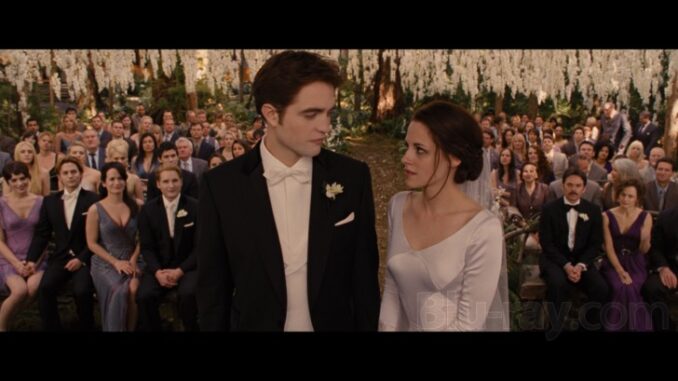
The mists of Forks, Washington, seem to have stirred once more, not just with the perpetual Pacific damp, but with the spectral whispers of a potential resurrection. News of a possible Twilight Saga reboot, specifically a television series, has sent ripples through the collective consciousness of its dedicated fanbase, igniting a fervent discourse that oscillates between ecstatic anticipation and protective trepidation. This isn't just news; it's a cultural event, a re-opening of a beloved (and often maligned) world, forcing a re-evaluation of its legacy and sparking a dizzying array of fan theories about what a new iteration could, or should, be.
The initial reports were tantalizingly vague: Lionsgate was reportedly developing a new Twilight TV series, with Stephenie Meyer, the author herself, said to be involved. The precise nature—a direct remake, a spin-off, an animated series, a live-action "reimagining"—remained shrouded in mystery, yet the mere possibility was enough to send the fandom into a tizzy. For many, it felt like a homecoming, a chance to revisit a saga that defined their formative years, now through the lens of modern storytelling and visual effects. For others, it was a red flag, a cynical attempt to milk an established IP, potentially tarnishing the nostalgic glow of the original films and books.
This schism in initial reactions immediately gave rise to a rich tapestry of fan theories, each reflecting a specific hope, fear, or profound understanding of the Twilight universe. One of the most prevalent and passionately argued theories centers on the desire for deeper lore exploration. The original films, constrained by runtime and a focus on Bella and Edward's romance, often skimmed over the intricacies of Meyer's meticulously crafted world. Fans yearn for a series that delves into the extensive backstories of the Cullen family. Imagine, for instance, an episode dedicated entirely to Rosalie's tragic human life and her vengeful transformation, or Jasper's traumatic experiences during the Southern Wars, his constant battle with his bloodlust becoming a palpable struggle. Alice's enigmatic visions, Carlisle's centuries of compassionate existence, and Esme's journey to motherhood—these are not just plot points, but rich narrative veins waiting to be mined. A TV format, with its extended runtimes, offers the perfect canvas for such nuanced character development, moving beyond the central love triangle to flesh out the entire supernatural tapestry.
Another popular theory revolves around alternative perspectives. While Bella Swan's perspective dominated the books and films, fans have long speculated about the events unfolding through the eyes of other characters. A Jacob Black-centric arc, exploring the Quileute tribe's ancient history, their rivalry with the vampires, and the spiritual weight of imprinting, could offer a fresh, indigenous lens on the saga. Even minor characters like Leah Clearwater, the only female shapeshifter, could be given a powerful voice, exploring themes of gender, pack dynamics, and loss. Some daring theories even posit a series told from the perspective of the Volturi, the ancient vampire coven, exploring their political machinations, their complex history, and the moral ambiguities of their role as enforcers of the vampire world's laws. This would shift the narrative from a gothic romance to a dark fantasy epic, a "Game of Thrones" with fangs.
Then there are the theories born from a desire for redemption and refinement. Even the most ardent fans admit the original films had their quirks – from some of the infamous lines ("You're like my own personal brand of heroin") to occasionally questionable CGI (the infamous Renesmee). A reboot, many theorize, offers a chance to "fix" these perceived flaws. This could mean more faithful adaptations of book dialogues, improved visual effects for vampire speed and strength, or a more nuanced portrayal of Bella's character arc, empowering her agency and intellectual curiosity beyond her romantic entanglements. Some theories suggest a more mature tone, allowing for the darker, more unsettling aspects of the vampire world to shine through, moving beyond the "PG-13 angst" into a realm that truly explores the consequences of immortality and violence.
However, amidst these hopeful imaginings, there's an undercurrent of anxiety that fuels a different set of theories – those born from caution. The primary fear is dilution or betrayal. For a generation, the original films, for all their flaws, became a sacred text, a shared cultural touchstone. Fans worry that a reboot might strip away the unique, often campy, charm that made Twilight so endearing. Will new actors be able to capture the iconic essences of Edward, Bella, and Jacob without feeling like pale imitations? Will a modernized script lose the specific, almost earnest, melodrama that defined the original? There's a theory that a reboot, in trying to be "better" or more "serious," might inadvertently lose the very soul of Twilight – its distinct blend of angsty romance, supernatural fantasy, and unapologetic sincerity. Some theorize it might become too generic, too polished, erasing the rough edges that made it feel so authentic and beloved to its core audience.
The discourse surrounding the Twilight Saga reboot news and its accompanying fan theories is more than just speculation about a TV show; it's a fascinating sociological study of how audiences engage with beloved intellectual property. It highlights the enduring power of fan communities to shape narratives, to collectively dream of possibilities, and to vociferously protect what they hold dear. Whether the eventual series aligns with the most hopeful fan theories or succumbs to the anxieties, one thing is certain: the conversation proves that the world Stephenie Meyer created, shrouded in mist and bathed in perpetual twilight, continues to hold an unbreakable spell over the hearts and imaginations of millions. The saga, it seems, is far from over.
